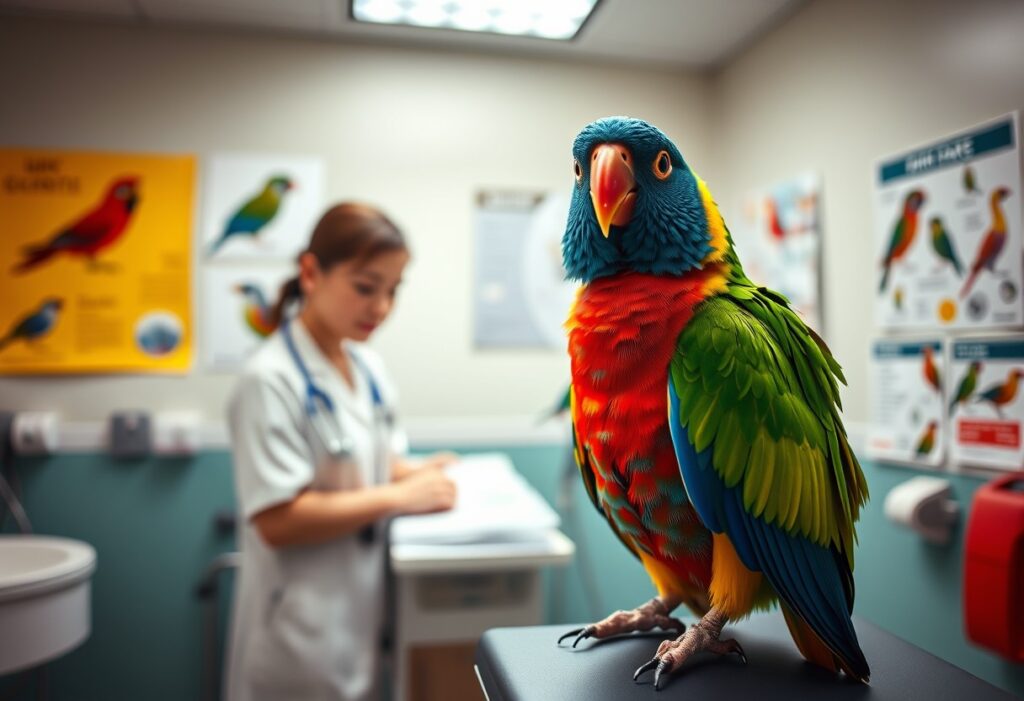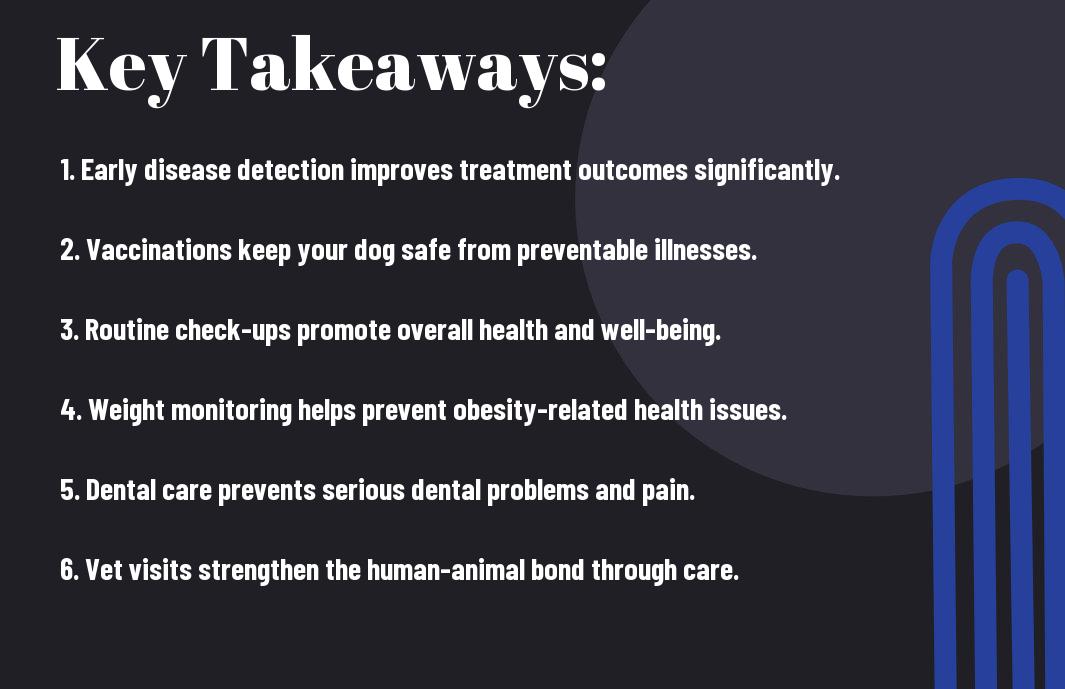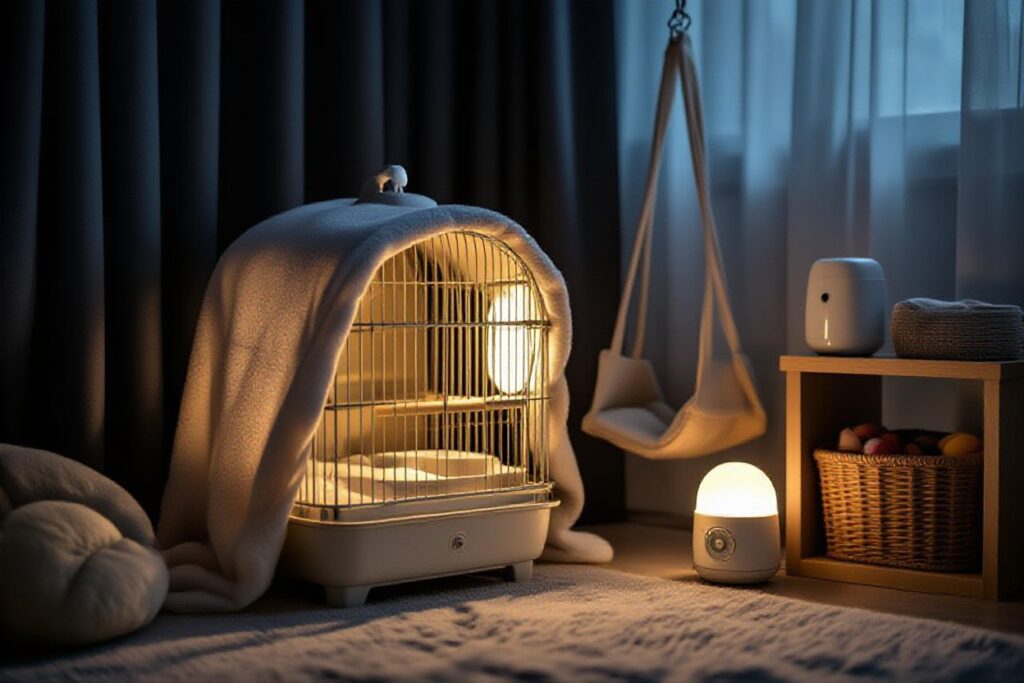With regular check-ups, you can ensure that your feathered friend maintains optimal health and longevity. These routine visits not only help in early detection of potential health issues, but they also provide you with valuable insights into your bird’s diet and behavior. Neglecting check-ups may lead to undiagnosed conditions that could become catastrophic. By prioritizing these appointments, you’re taking a proactive stance in safeguarding your bird’s welfare, ensuring a happier, healthier life for your cherished companion.
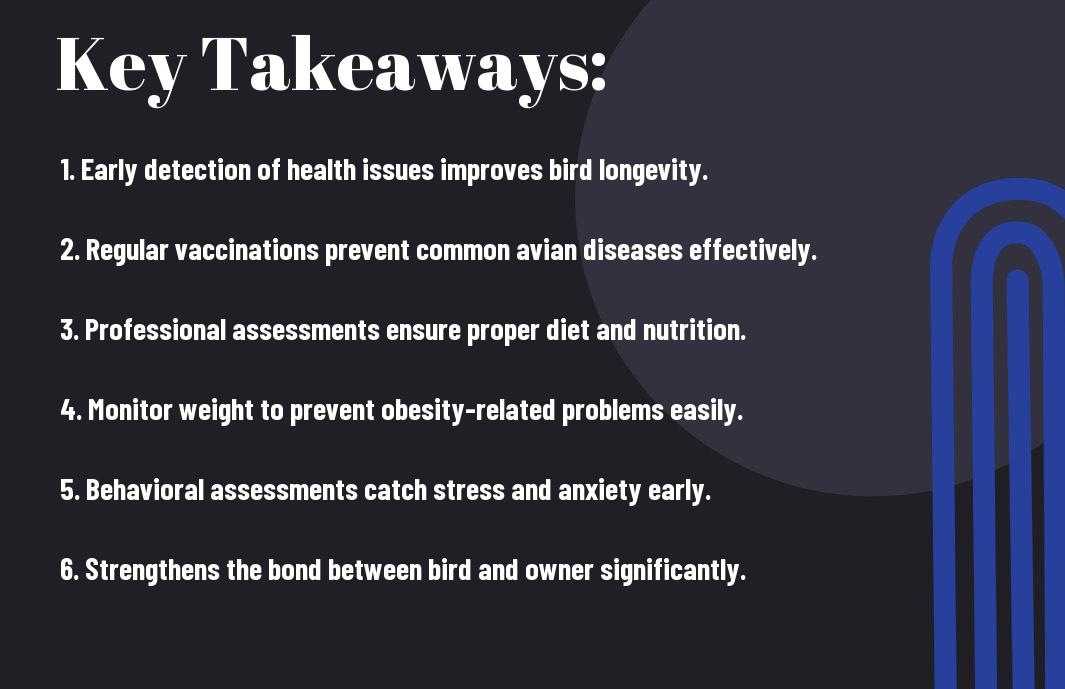
Understanding the Importance of Regular Check-Ups
To ensure your feathered friend remains healthy and happy, it’s necessary to comprehend the significance of regular veterinary check-ups. Just like any other pet, birds have unique health needs that can change depending on their species, age, and lifestyle. Regular check-ups allow you to keep track of your bird’s overall well-being, detect potential health issues early, and provide appropriate preventative care. By forming a relationship with an avian veterinarian, you can ensure your bird receives the specialized attention it requires.
Overview of Bird Health Needs
Birds require a balanced diet, a clean living environment, and mental stimulation to thrive. They also need regular social interaction and exercise to maintain their physical and emotional health. It’s crucial to show understanding of your bird’s specific nutritional requirements, which can vary widely among species. Regular check-ups offer the opportunity to discuss dietary adjustments, habitat improvements, and behavioral concerns with your veterinarian, ensuring you meet your bird’s evolving health needs.
Common Health Issues in Birds
Common health issues in birds can quickly escalate if not addressed properly. Birds can suffer from a variety of ailments, including nutritional deficiencies, respiratory infections, and parasitic infestations. These conditions may go unnoticed initially, as birds often mask signs of illness until they are significantly affected. By scheduling regular veterinary visits, you equip yourself with the knowledge to recognize subtle changes in your bird’s behavior and physical health.
To maintain your bird’s health effectively, it’s vital to be alert to common symptoms that may indicate underlying health issues. For instance, changes in appetite, feather conditions, and lethargy can signify problems that, if diagnosed early, can lead to more successful treatment. Regular check-ups not only facilitate early detection of these symptoms but also provide you with the tools and resources necessary for preventative care, ensuring your bird lives a long, healthy life.
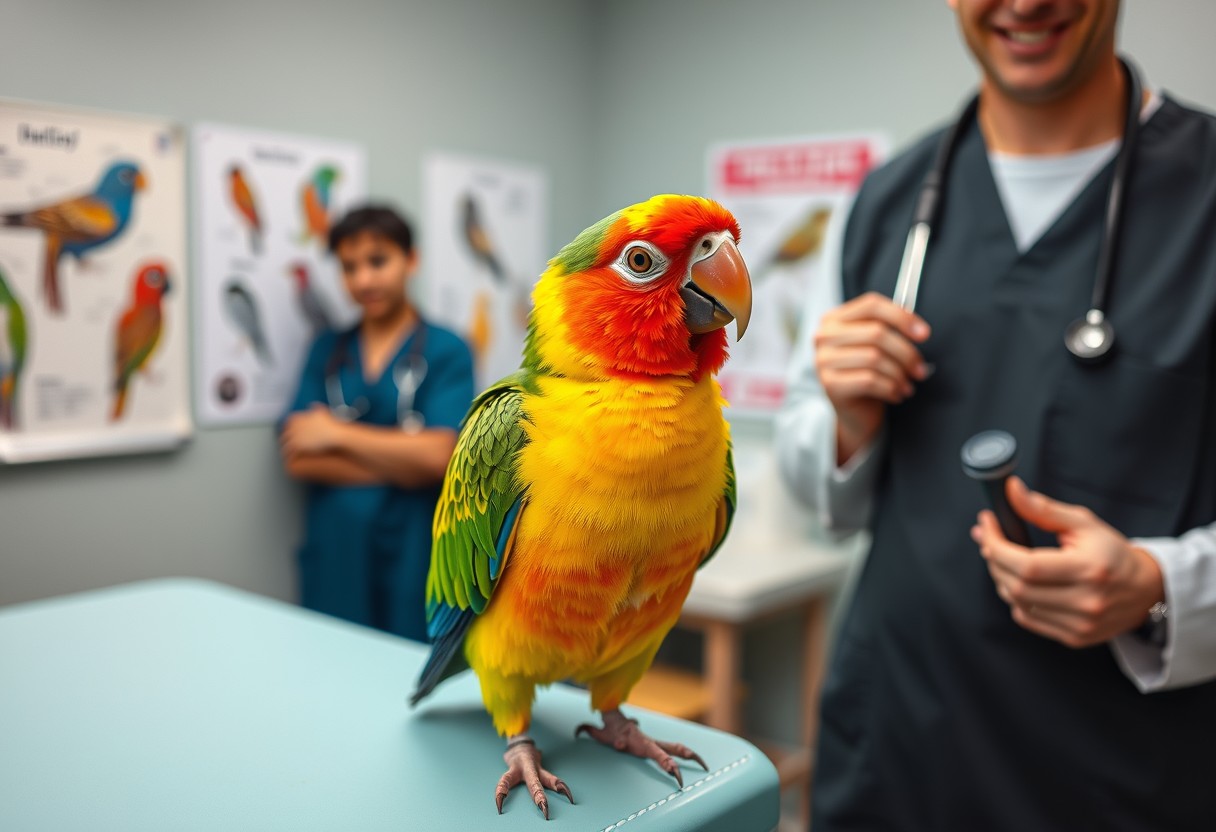
Benefits of Regular Veterinary Visits
If you are a bird owner, it is crucial to prioritize regular veterinary visits for your feathered friend. These check-ups are important for maintaining your bird’s overall health and well-being. Just as humans benefit from routine medical examinations, your avian companion requires consistent health assessments to ensure they are thriving and free from illness.
Early Detection of Diseases
Diseases in birds can often develop silently, making it difficult for you to notice any symptoms until they have progressed significantly. With regular veterinary visits, your vet can perform comprehensive examinations that may reveal health issues before they become serious. This proactive approach allows for early treatment, which can often be less invasive and more effective than addressing advanced complications.
Additionally, veterinarians can provide you with important insights into common avian diseases and recommend tailored screening protocols based on your bird’s species, age, and living conditions. Early detection not only enhances your bird’s quality of life but also decreases potential long-term veterinary costs.
Preventative Care and Vaccinations
The importance of preventative care cannot be overstated when it comes to your bird’s health. Regular veterinary visits allow your veterinarian to administer necessary vaccinations that protect your bird from various infectious diseases. Just like in humans, these vaccinations can be life-saving and vastly improve your pet’s longevity.
Preventative care includes other vital health measures such as deworming and treatments for parasites, which, if left unchecked, can lead to severe health issues. Your vet can also advise you on common environmental hazards and safe practices to keep your bird healthy.
Nutritional Guidance for Optimal Health
Regular veterinary visits are an excellent opportunity to discuss your bird’s diet and nutritional needs. Proper nutrition is important for maintaining your bird’s energy levels, plummeting the risk of obesity, and ensuring a healthy immune system. Your vet can help you identify if your bird is receiving a balanced diet and suggest any necessary dietary adjustments.
With the right nutritional guidance, you can enhance your bird’s overall health, energy, and longevity. Proper diet not only supports physical well-being but also contributes to better behavior and mood. Tailored feeding recommendations can lead to a happier, healthier bird, emphasizing the critical role of regular veterinary visits in your pet’s health routine.
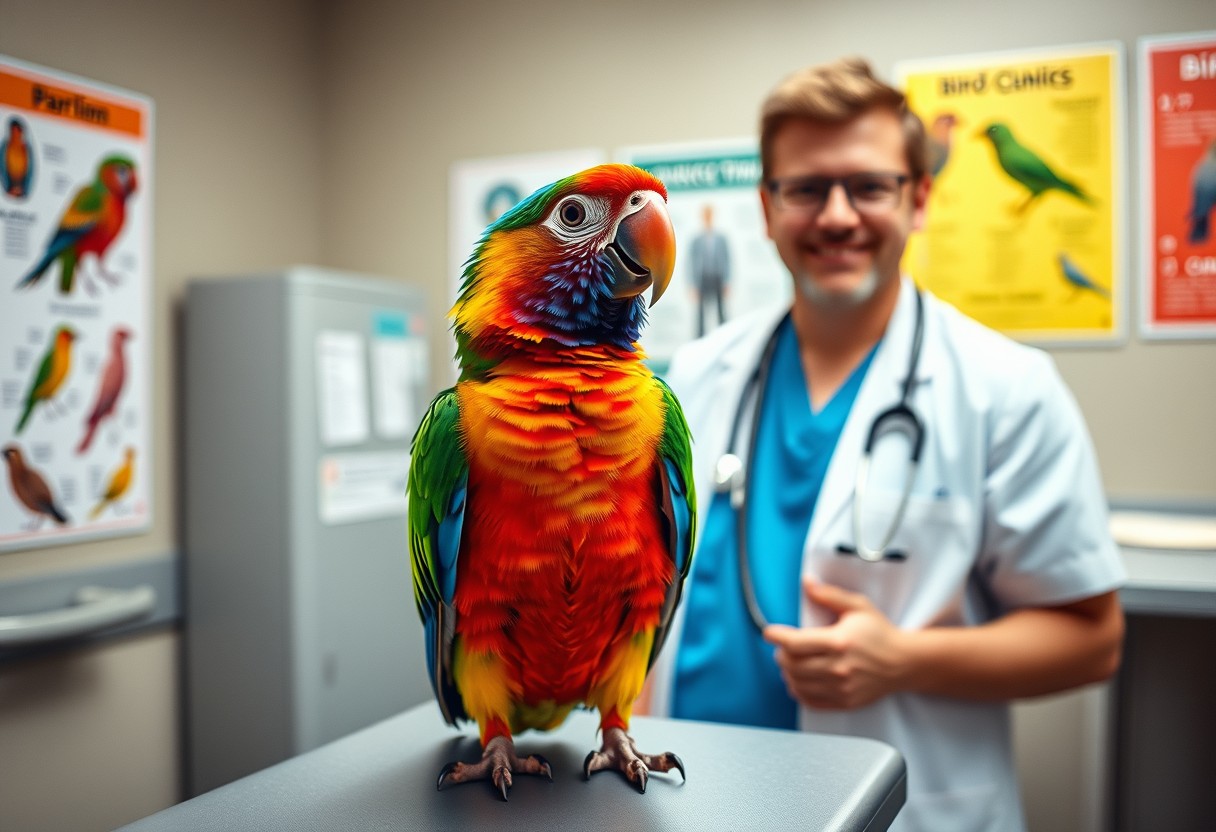
The Role of Avian Veterinarians
Not every veterinarian is equipped to handle the unique needs of birds. This is where the specialized field of avian veterinarians comes into play. These professionals are dedicated to the health of avian species, requiring extensive training and depth of knowledge to address the complexities of bird care. Their expertise allows them to identify specific illnesses, understand behavioral issues, and recommend proper husbandry practices that all contribute to your bird’s overall well-being.
Specialized Knowledge and Skills
To ensure your bird thrives, avian veterinarians possess specialized knowledge and skills that are indispensable. They undergo rigorous training that focuses on the anatomy, physiology, and diseases prevalent in birds. This training empowers them to recognize subtle signs of distress that may go unnoticed by those without avian expertise. For instance, they can distinguish between normal and abnormal droppings or detect changes in feeding behavior, enabling them to diagnose problems early.
Additionally, avian veterinarians keep up with the latest research and treatments unique to birds. Their continuous education means that they can provide you with the most accurate advice on nutrition, preventive care, and medical treatment tailored specifically for your feathered friend, ultimately leading to a longer and healthier life for your pet.
Tailored Health Plans for Different Species
Different bird species have distinct health requirements, necessitating a customized approach to their care. Your avian veterinarian will create a tailored health plan that considers your bird’s specific species, age, and health status. This customized plan can include recommendations on diet, exercise, and environment that cater to your bird’s unique physiology and temperament, ensuring they thrive in your care.
A well-structured health plan typically involves routine check-ups, vaccinations, and preventive screenings that are designed to catch issues before they escalate into serious health concerns. By understanding your bird’s natural behavior and habitat needs, your avian veterinarian formulates a comprehensive strategy that addresses your pet’s specific requirements, ensuring that you provide the best care possible. This level of personalized attention not only enhances the quality of your bird’s life but also fosters a stronger bond between you and your avian companion.
To Wrap Up
Considering all points, regular check-ups for your bird are crucial for ensuring their long-term health and well-being. These veterinary visits allow for the early detection of potential health issues, which can significantly improve your pet’s quality of life. By keeping up with routine examinations, you equip yourself with the knowledge to address any dietary, behavioral, or environmental factors that could negatively impact your bird’s health. Additionally, a veterinarian’s expertise can guide you on proper care techniques that may not be apparent to you, ultimately fostering a happier and healthier companion.
Moreover, regular check-ups promote a strong bond between you and your bird, as they familiarize your pet with veterinary environments and lessen anxiety during examinations. By investing time in these appointments, you not only safeguard your bird from illness but also enhance its overall living conditions. In short, routine check-ups are a vital aspect of responsible bird ownership that ensure your feathered friend thrives in a supportive and healthy environment.
FAQ
Q: Why are regular check-ups important for my bird’s health?
A: Regular check-ups are vital for your bird’s health because they help in early detection of potential health issues. Birds are adept at hiding symptoms of illness, which makes it challenging for owners to notice when something is wrong. During a check-up, a veterinarian can assess your bird’s overall condition, perform necessary tests, and monitor any changes in weight or behavior that may indicate underlying problems. Regular examinations also enable vaccinations and preventive care that can help protect your bird from common diseases.
Q: How often should I schedule check-ups for my bird?
A: It is generally recommended to schedule a check-up for your bird at least once a year. However, if your bird is older, has pre-existing health conditions, or shows any signs of illness, more frequent visits may be necessary. Young birds may also benefit from more regular check-ups to ensure they are growing and developing normally. Your veterinarian can provide personalized recommendations based on your bird’s specific needs and health status.
Q: What can I expect during a bird check-up appointment?
A: During a bird check-up appointment, the veterinarian will conduct a thorough physical examination, checking your bird’s feathers, beak, eyes, and feet for any signs of distress or disease. They may also weigh your bird to monitor any weight changes. Depending on the findings, the vet may recommend routine blood work, fecal tests, or other diagnostic procedures to assess your bird’s health comprehensively. Additionally, the vet can provide advice on diet, environment, and behavioral concerns to ensure your bird remains healthy and happy.
